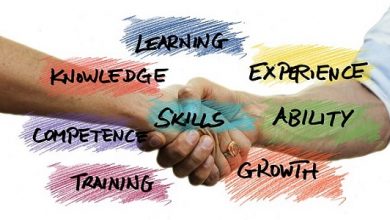Economics/Business
Economics
Economics is the social science that studies how individuals, businesses, governments, and societies allocate scarce resources to satisfy their unlimited wants and needs. It is concerned with the production, distribution, and consumption of goods and services, and the decisions and behaviors of individuals and institutions that shape these processes.
By reading the intensive articles of Englopedia.com you will grasp that it is a broad field that encompasses various branches and subfields, including microeconomics, macroeconomics, international economics, labor economics, behavioral economics, and many others. Microeconomics focuses on the behavior of individuals and firms, while macroeconomics looks at the overall performance of the economy, including issues such as inflation, unemployment, and economic growth. International economics examines the flow of goods, services, and capital across borders, while labor economics focuses on the behavior of workers and employers in the labor market.
Englopedia will make you aware that Economists use a range of tools and techniques, such as mathematical modeling, statistical analysis, and experimental methods, to study and analyze economic phenomena. They aim to understand how markets work, how individuals and institutions make decisions, and how public policies and institutions impact economic outcomes.
Through the leading articles of Englopedia you will realize that Economics has significant implications for individuals, businesses, governments, and societies, as it can inform decisions related to investments, production, taxation, trade, and social welfare policies. It is a crucial field of study for understanding the functioning and dynamics of modern economies and for addressing pressing global issues, such as inequality, climate change, and economic development.
-

What is compliance in business with pillars important benefits types
What Is Compliance With origin in English, the word compliance in business means, in free translation, “to be in compliance…
Read More » -

What is ERP and how does it work Advantages Types and How to plan
ERP In this article we will provide you the information about ERP and how does it work Advantages Types and…
Read More » -

What is a recognition program its importance benefits and How to structure
Recognition program In this article we will provide you the information about recognition program its importance benefits and How to…
Read More » -

What is employability skills its importance pillars and How to increase
Employability In this article we will provide you the information about What is employability skills its importance pillars and How…
Read More » -

What is Corporate University Characteristics functions Advantages
Corporate University Corporate University (CU) or Business University are the names given to the tool or platform for qualifying professionals…
Read More » -

Inclusive language in a company difference with neutral languageand its importance
Inclusive language Inclusive language is a communication tool , textual or oral, which is structurally concerned with not excluding or reducing any group of…
Read More » -

HR strategic planning process advantages and steps in HR strategic planning
HR strategic planning In this article we will provide you the information about HR strategic planning process advantages and steps…
Read More » -

What is strategic HR its goals and advantages
Strategic HR Strategic human resource management is a process that helps the human resources department maximize the potential of its…
Read More » -

What is employee engagement and why is it important
Employee engagement Employee engagement is the focus that employees undertake at work, going beyond what is expected of them, since…
Read More » -

Just cause meaning with 13 main reasons
Just cause In this article we will provide you the meaning of ‘just cause’ with 13 main reasons. Just cause…
Read More »